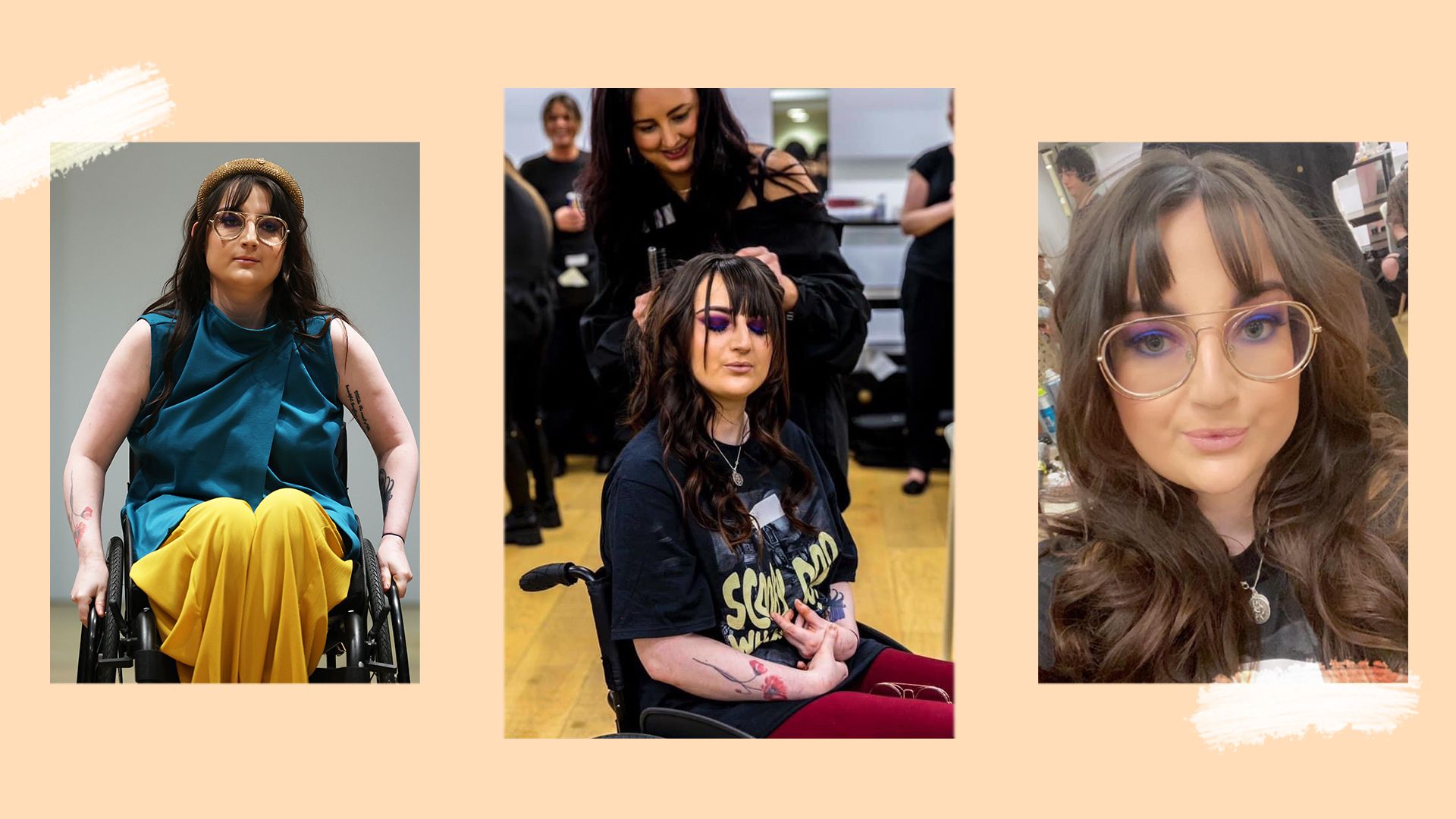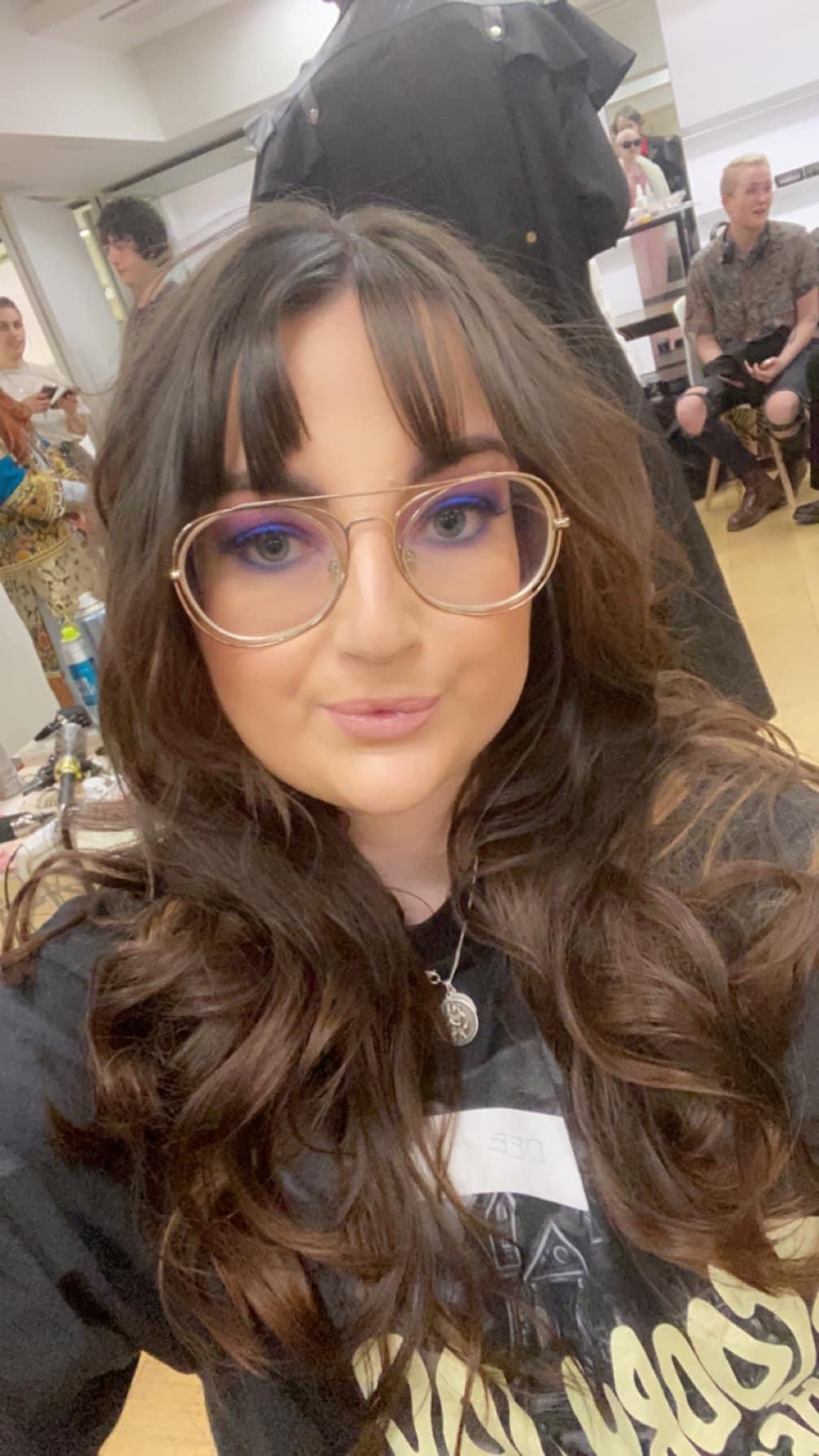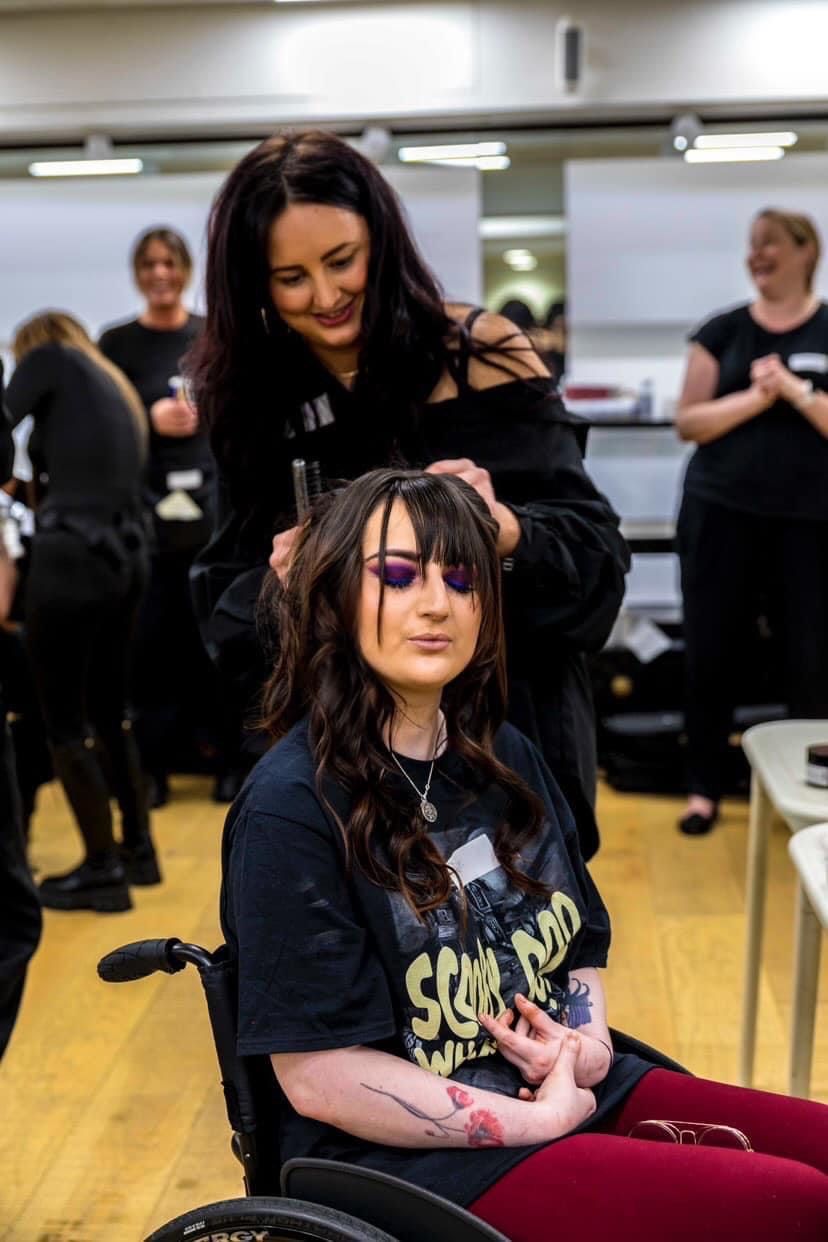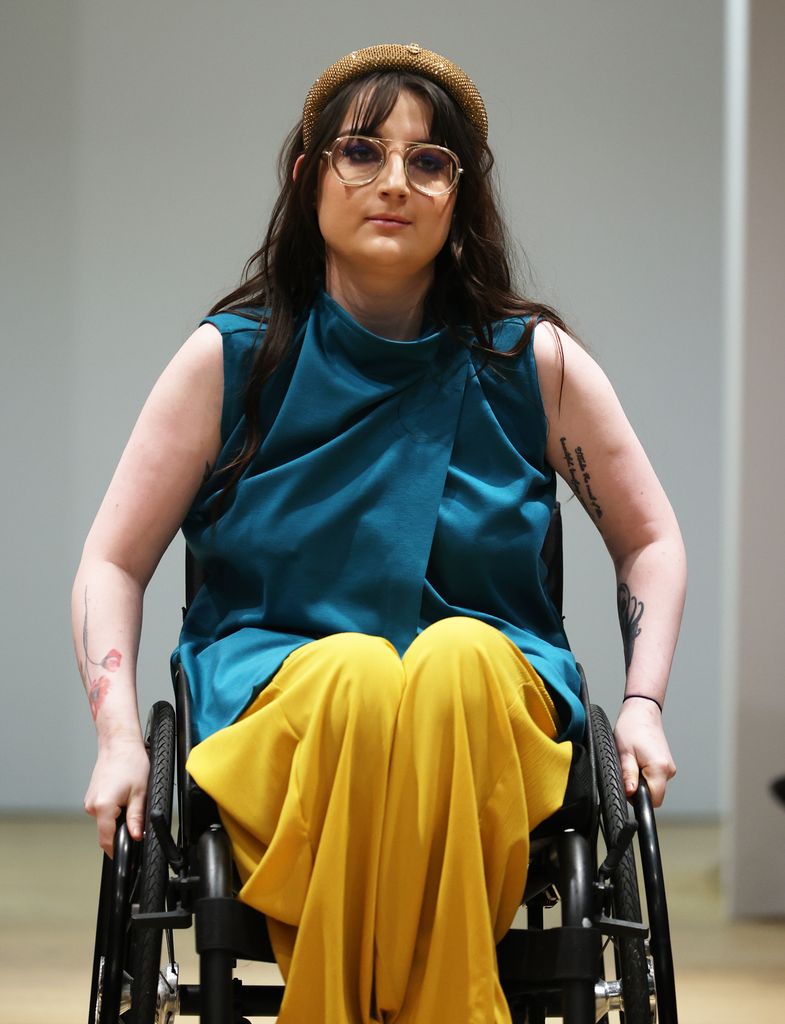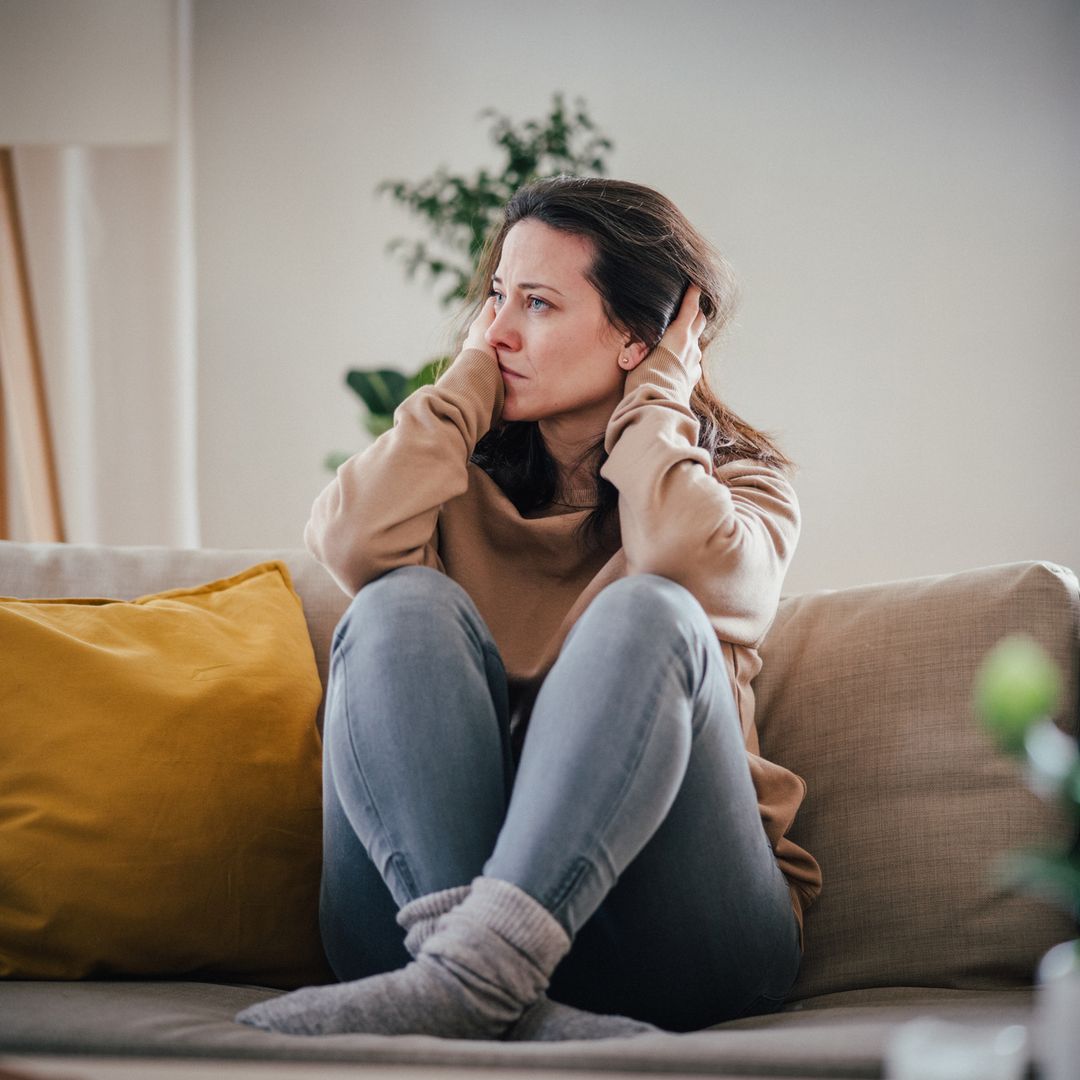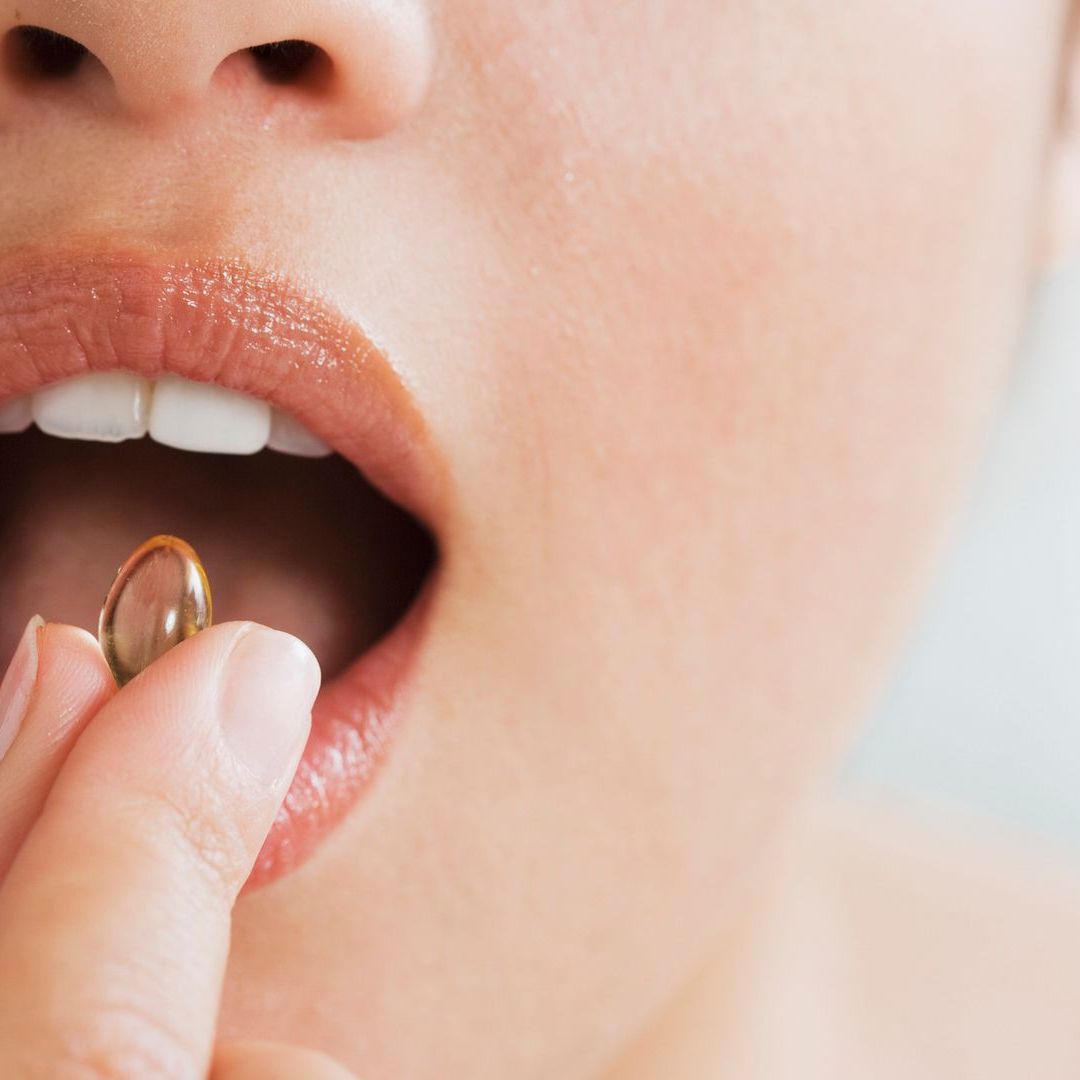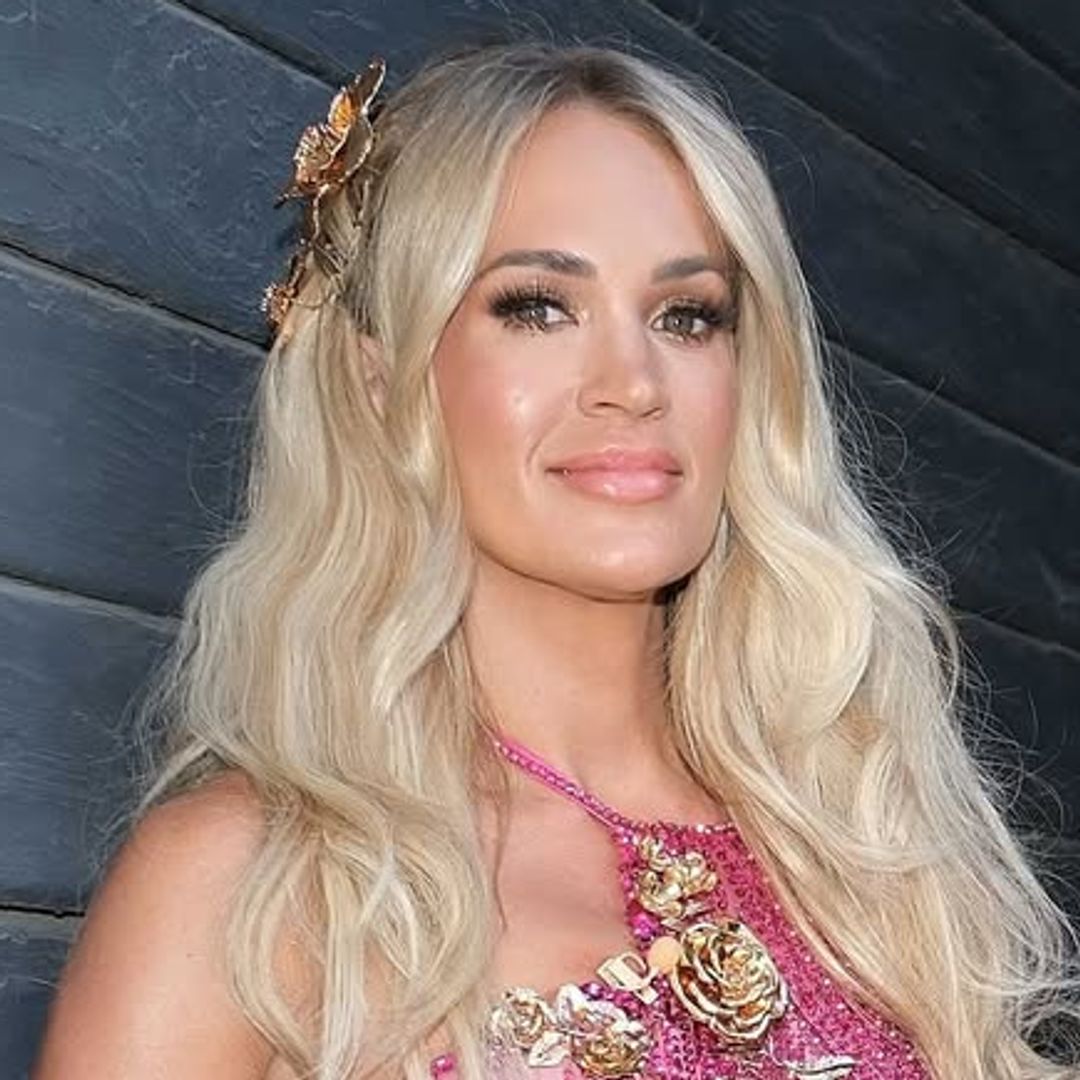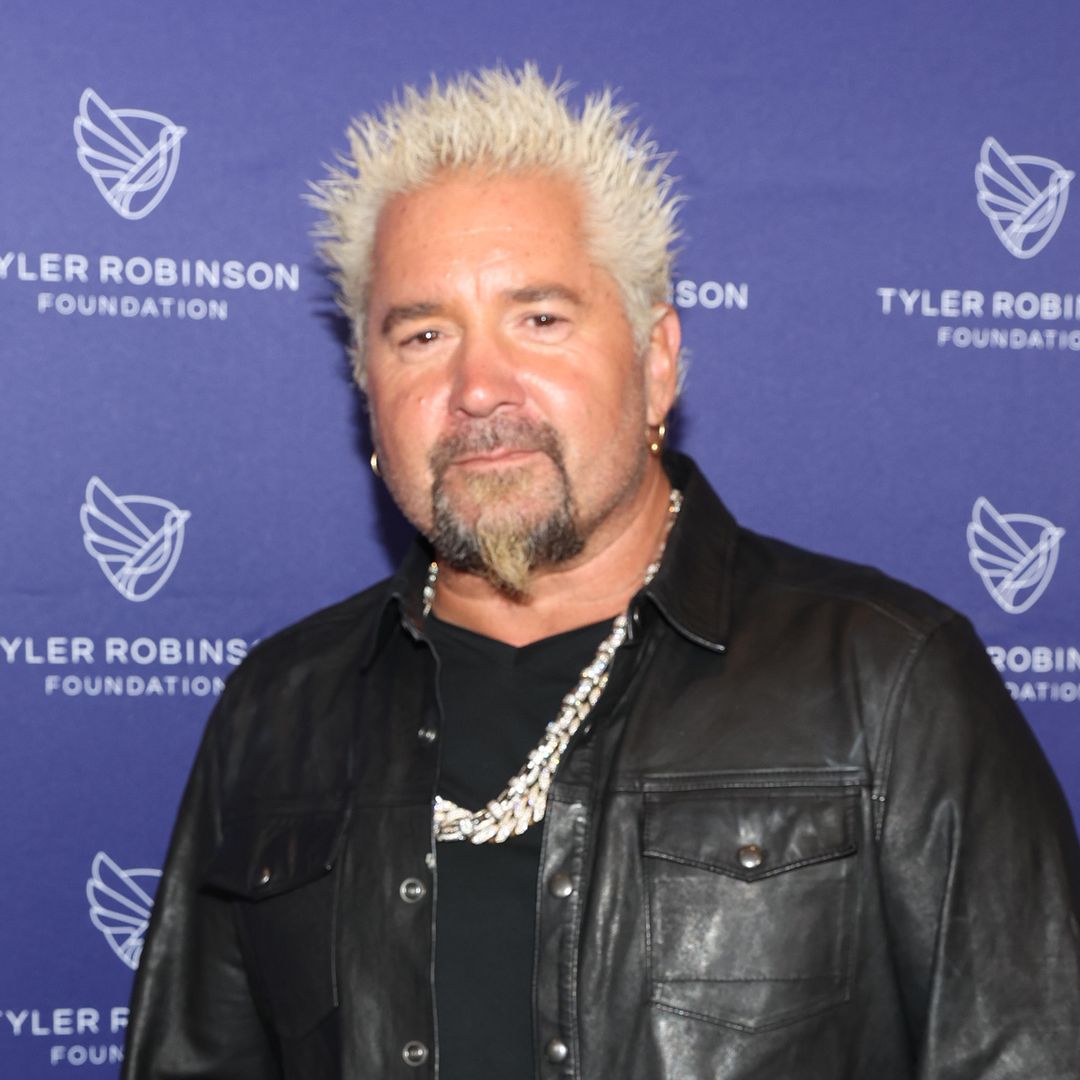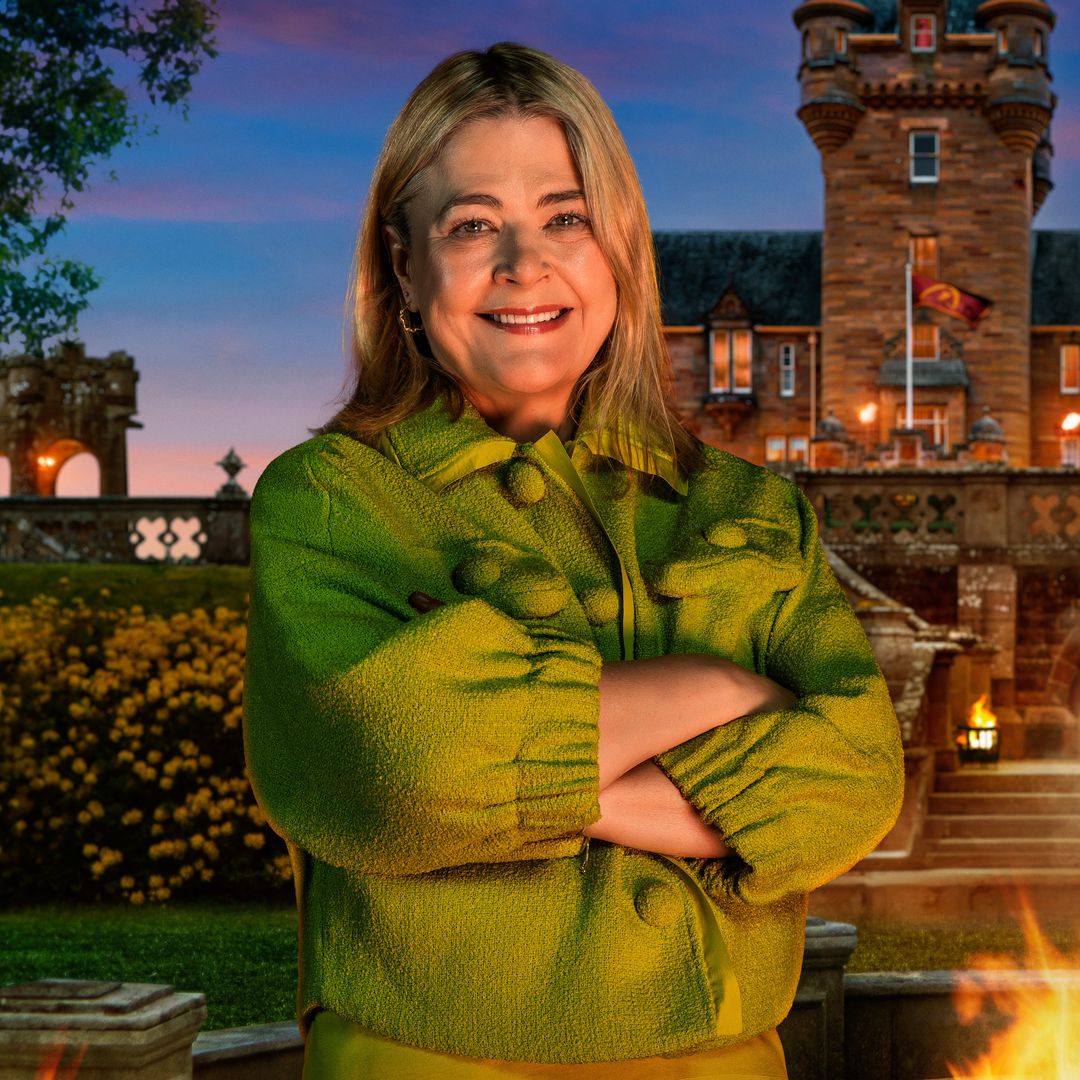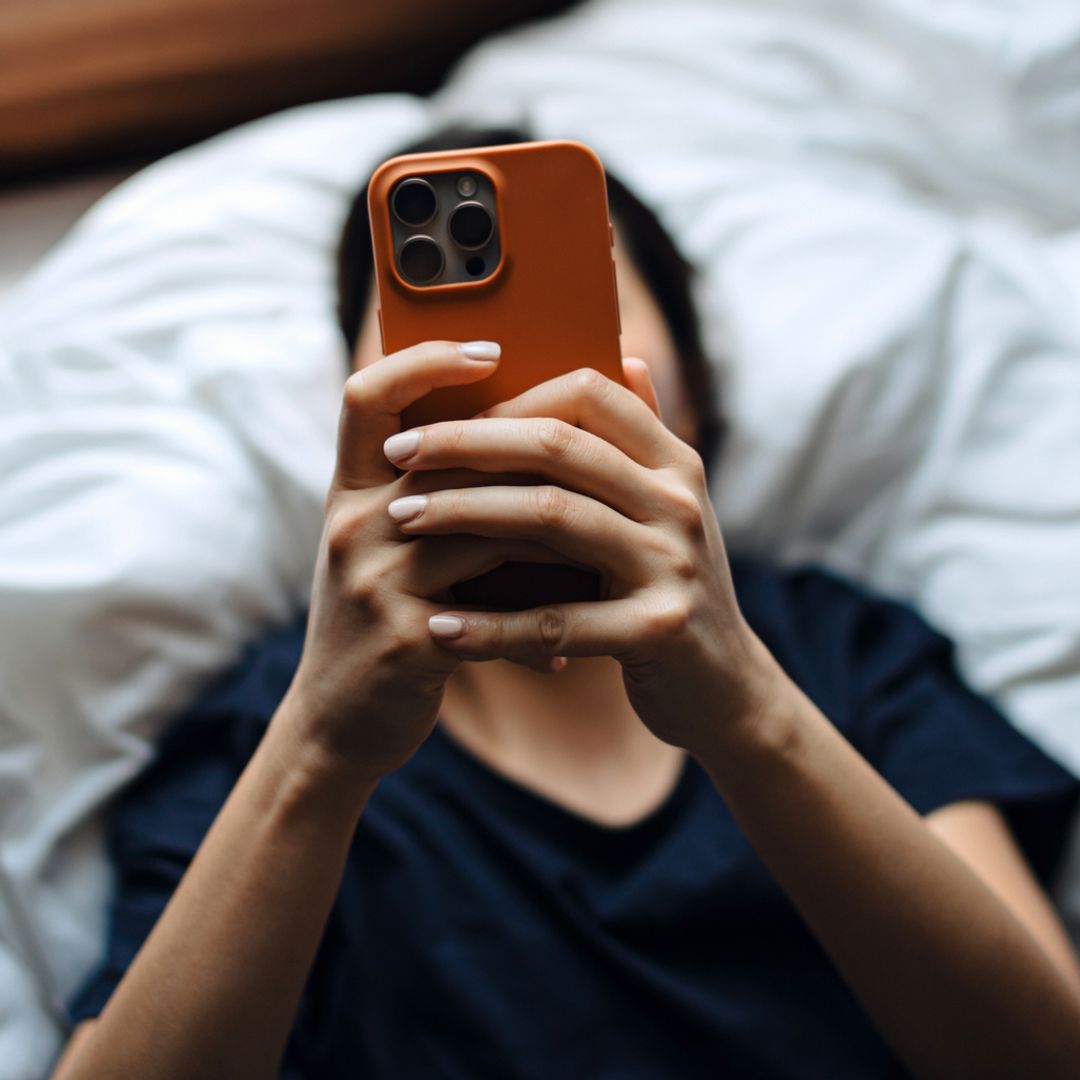For me, anxiety and disability have always gone hand in hand. People can't help but look at a woman in a wheelchair, so I've tried not to draw attention to myself.
Until this year that is, when I found myself taking part in a London Fashion Week (LFW) show for disabled fashion brand Unhidden.
My anxiety skyrocketed at the mere thought of appearing on the runway. I have anxiety rolling down the street to Tesco, yet somehow I've found myself going down a runway with all eyes on me.
I was diagnosed with Friedreich's ataxia (FA) six years ago when I was 19. FA is a hereditary condition thought to affect one in every 50,000 people, which sees the nerve fibres in the spinal cord degenerate gradually over time, with symptoms including difficulty with movement and speech
My condition exacerbated my anxiety and upon arriving backstage at LFW, I was hit with a wall of sound and met by hair and makeup teams rushing around. Press were weaving into the fray with cameras pointed at me.
READ: 'How modelling taught me not to care about other people's opinions'
Though I was anxious, I had the calming realisation that all the models were disabled. Even the designer and creator herself was disabled. Everywhere I looked I was met with a sea of wheelchairs, walkers and canes.
But even though this was my community, I couldn’t help but notice how alien a disabled catwalk looked.
The internal ableism within me from years of watching Victoria’s Secret and America's Next Top Model runway shows told me that models have to be thin and tall with structured features and unattainable looks.
But I was wrong. Models can be whatever beautiful form the human body takes. After all, we all wear clothes and we deserve to be seen in high-end fashion.
Backstage, my anxiety didn't have time to send me into flight mode because I was whisked into hair and makeup as soon as I arrived at the show.
MOST READ: 'How rock climbing finally helped me embrace my plus-sized body'
I was told I had beautiful skin and stunning, long hair. Nobody caveated the compliments by saying: "You're so beautiful for a woman in a wheelchair."
The comments were coming from an honest place by professionals. There was no pity in their eyes, just mutual respect as equals, as it should be. It reaffirmed my own self-love enough to go through with the show - and I even began contemplating that perhaps I am beautiful.
That said, imposter syndrome was real. I kept thinking, "I shouldn’t be here, I’m not a model," but what defines a model? What defines beauty? We do! I do! Size, shape, disability. All are beautiful.
Being around other disabled models and hearing their stories, all different from my own, was refreshing. We were all in the same boat in a sea we normally wouldn’t be invited into, and this calmed my nerves slightly. I wasn’t alone. We are never alone.
The disabled community is larger than people think. One in five people have a disability and as a result, feel they aren’t beautiful or good enough, because we’ve been kept out of media and societal representation for decades.
But we are finally being seen as equal and just as capable as able-bodied people. We can do what everyone else can, in our own way.
MOST READ: 'A naked photoshoot taught me to love my chronically ill body'
I for one refuse to be seen as 'less than' due to my disability. It took years for me to come to that realisation.
Ableist comments calling me a ‘charity case’, putting my success and work down to nothing more than a diversity hire, are still said to me. But it’s a reflection on them, not on me. Knowing my worth is valued only by how I see myself has been transformational.
Being a disabled model in a London Fashion Week show gave me the strength and confidence to push past the doubt brought on by society. In that moment, we were seen, heard and we sparked a change within fashion, which will hopefully spread into other fields to normalise equality and disability.
I left the event knowing my strength. I won’t give up or stop fighting for myself and my people. If disabled children see what I’m doing and know they can be whoever, whatever they want to be, I’ve done my job.
For more from Dee, check out her Instagram, and for your ultimate guide to happiness, check out our HELLO! Happiness hub
